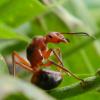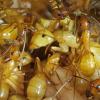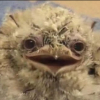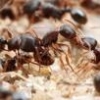- Formiculture.com
- Forums
- Gallery
- Members
- Member Map
- Chat

Ant species for a school science lab?
Started By
Mortsy88
, May 23 2019 6:05 AM
37 replies to this topic
#21
 Offline
-
Posted May 25 2019 - 8:47 AM
Offline
-
Posted May 25 2019 - 8:47 AM
I'm shocked how supportive people are of importing ants. It is a horrific practice that is terrible for the environment. It should never be done.
Keeper of:
1x Formica Pacifica
2x Camponotus Modoc
1x Tetramorium Immigrans
2x Lasius Sp
Founding:
3x Lasius Sp
2x Formica Argentea
2x Myrmica Rubra
GAN Farmer: 4 Colonies sold
Goal: Supply school science classes with colonies for learning.
#22
 Offline
-
Posted May 25 2019 - 8:49 AM
Offline
-
Posted May 25 2019 - 8:49 AM
I'm shocked how supportive people are of importing ants. It is a horrific practice that is terrible for the environment. It should never be done.
I hope you don't have non native plants in your garden or any animals which are not native.
Of course I assume you don't eat any non native plant based food which was cultivated where you live, right?
I'm always shocked how hypocritical most people are ![]()
If he asked for suitable fish for an aquarium in a class room we wouldn't have this stupid discussion about native vs non native at all. But no it is about ants..., so here we go again ![]()
By the way he lives in the UK and is free to buy non native ants legally so why do you care?
Edited by Barristan, May 25 2019 - 8:59 AM.
- VoidElecent, TennesseeAnts, Nare and 1 other like this
#23
 Offline
-
Posted May 25 2019 - 9:30 AM
Offline
-
Posted May 25 2019 - 9:30 AM
I'm shocked how supportive people are of importing ants. It is a horrific practice that is terrible for the environment. It should never be done.
In the U.K., most of the imported ants that everyone is recommending won't live a week In the wild.
I'm shocked how supportive people are of importing ants. It is a horrific practice that is terrible for the environment. It should never be done.
I hope you don't have non native plants in your garden or any animals which are not native.
Of course I assume you don't eat any non native plant based food which was cultivated where you live, right?
I'm always shocked how hypocritical most people are
If he asked for suitable fish for an aquarium in a class room we wouldn't have this stupid discussion about native vs non native at all. But no it is about ants..., so here we go again
By the way he lives in the UK and is free to buy non native ants legally so why do you care?
there are different levels of introduced speicies. many are already established or won't live without human care and simulation of their native habitat.
- TennesseeAnts likes this
#24
 Offline
-
Posted May 26 2019 - 2:25 PM
Offline
-
Posted May 26 2019 - 2:25 PM
@Barristan - obviously I wouldn't be stupid enough to bring in a non native plant that any chance at survival. The plants and fish we have - tropical. Need temperatures of around 80 year round, the water here never gets near that. And..fish..in an aquarium..if it breaks it not like they can go live in a wall or in the floor of my house...they die immediately. If I lived in a tropical climate, obviously I should not bring in any potential invasive species
The environmental concerns with ANY imported life are completely valid...we see the impacts of this daily. Fire ants, who used to be thought to not be able to survive cold winters, have been seen doing so in the US. We don't understand nearly enough about ants to think any sort of importing is safe.
There's alot of stuff that is legal that should not be done. Importing any life that has the potential of surviving in your climate is [censored] stupid, bottom line. If you believe the whole "oh it can't be that bad", you're naieve as [censored]. People like that will be the ones that ruin the ant hobby for the rest of us.
The environmental concerns with ANY imported life are completely valid...we see the impacts of this daily. Fire ants, who used to be thought to not be able to survive cold winters, have been seen doing so in the US. We don't understand nearly enough about ants to think any sort of importing is safe.
There's alot of stuff that is legal that should not be done. Importing any life that has the potential of surviving in your climate is [censored] stupid, bottom line. If you believe the whole "oh it can't be that bad", you're naieve as [censored]. People like that will be the ones that ruin the ant hobby for the rest of us.
Edited by PwnerPie, May 26 2019 - 2:29 PM.
- Canadian anter likes this
Keeper of:
1x Formica Pacifica
2x Camponotus Modoc
1x Tetramorium Immigrans
2x Lasius Sp
Founding:
3x Lasius Sp
2x Formica Argentea
2x Myrmica Rubra
GAN Farmer: 4 Colonies sold
Goal: Supply school science classes with colonies for learning.
#25
 Offline
-
Posted May 26 2019 - 2:48 PM
Offline
-
Posted May 26 2019 - 2:48 PM
I'm pretty sure half of the plants in your garden are non-native. Especially the more commonly popular ones.@Barristan - obviously I wouldn't be stupid enough to bring in a non native plant that any chance at survival.
Also there's quite a lot of tropical fish species that can't be bred in captivity and are all caught from the wild. This is actually a huge issue in fishkeeping.
- Barristan, TennesseeAnts and Somethinghmm like this
We should respect all forms of consciousness. The body is just a vessel, a mere hull.
Welcome to Lazy Tube - My Camponotus Journal
#26
 Offline
-
Posted May 26 2019 - 6:20 PM
Offline
-
Posted May 26 2019 - 6:20 PM
Honey DO YOU KNOW HOW MUCH THEY COST. THEY MAKE MY MYRMECIA LOOK CHEAP IN COMPARISONI run a Nature Center and I, just this year, decided to keep a couple Ant farms to compare and contrast the behaviors of social insects. (I also keep Honey Bees and am thinking of termites.
Anyway I chose Camponotus because of their size and the ability for Children to see them. With Camponotus you also eventually get the ability to show off the polymorphic aspects with Queen, Super Major, major, minor.
Dinomyrmex gigas are polymorphic too. Much more than Camponotus.
I know.
My Main Journal | My Neivamyrmex Journal | My Ant Adoption | My YouTube
Join the TennesseeAnts Discord Server! https://discord.gg/JbKwPgs
#27
 Offline
-
Posted May 26 2019 - 6:25 PM
Offline
-
Posted May 26 2019 - 6:25 PM
Honey DO YOU KNOW HOW MUCH THEY COST. THEY MAKE MY MYRMECIA LOOK CHEAP IN COMPARISON
I run a Nature Center and I, just this year, decided to keep a couple Ant farms to compare and contrast the behaviors of social insects. (I also keep Honey Bees and am thinking of termites.
Anyway I chose Camponotus because of their size and the ability for Children to see them. With Camponotus you also eventually get the ability to show off the polymorphic aspects with Queen, Super Major, major, minor.
Dinomyrmex gigas are polymorphic too. Much more than Camponotus.
I know.
I don't. Out of curiosity what we talkin'? ![]()
Billy
Currently keeping:
Camponotus chromaiodes
Camponotus castaneus
Formica subsericea
#28
 Offline
-
Posted May 26 2019 - 6:59 PM
Offline
-
Posted May 26 2019 - 6:59 PM
Honey DO YOU KNOW HOW MUCH THEY COST. THEY MAKE MY MYRMECIA LOOK CHEAP IN COMPARISONI run a Nature Center and I, just this year, decided to keep a couple Ant farms to compare and contrast the behaviors of social insects. (I also keep Honey Bees and am thinking of termites.
Anyway I chose Camponotus because of their size and the ability for Children to see them. With Camponotus you also eventually get the ability to show off the polymorphic aspects with Queen, Super Major, major, minor.
Dinomyrmex gigas are polymorphic too. Much more than Camponotus.
I know.
I don't. Out of curiosity what we talkin'?
Thousands. I'd say a small colony of 5 workers could go for $2,000.
My Main Journal | My Neivamyrmex Journal | My Ant Adoption | My YouTube
Join the TennesseeAnts Discord Server! https://discord.gg/JbKwPgs
#29
 Offline
-
Posted May 26 2019 - 7:36 PM
Offline
-
Posted May 26 2019 - 7:36 PM
Honey DO YOU KNOW HOW MUCH THEY COST. THEY MAKE MY MYRMECIA LOOK CHEAP IN COMPARISONDinomyrmex gigas are polymorphic too. Much more than Camponotus.
I know.
I don't. Out of curiosity what we talkin'?
Thousands. I'd say a small colony of 5 workers could go for $2,000.
Jokes on you, the Chinese amazon (Tao bao) sells them for 5000 hkd (637 USD)
- TennesseeAnts likes this
#30
 Offline
-
Posted May 26 2019 - 7:55 PM
Offline
-
Posted May 26 2019 - 7:55 PM
Geeee only $600 what a steal! LOL. Better than 2K but still more than I'm paying for ants. ![]()
- TennesseeAnts likes this
Billy
Currently keeping:
Camponotus chromaiodes
Camponotus castaneus
Formica subsericea
#31
 Offline
-
Posted May 26 2019 - 7:58 PM
Offline
-
Posted May 26 2019 - 7:58 PM
If I raise my myrmecia until she has ~10 workers, then I can sell the colony for 5000
#32
 Offline
-
Posted May 27 2019 - 6:52 AM
Offline
-
Posted May 27 2019 - 6:52 AM
Dinomyrmex gigas are polymorphic too. Much more than Camponotus.
Honey DO YOU KNOW HOW MUCH THEY COST. THEY MAKE MY MYRMECIA LOOK CHEAP IN COMPARISON
I know.
I don't. Out of curiosity what we talkin'?
Thousands. I'd say a small colony of 5 workers could go for $2,000.
Jokes on you, the Chinese amazon (Tao bao) sells them for 5000 hkd (637 USD)
Is that for a colony or small colony though? (I have seen small colonies of this ant to for $1500-2000)
My Main Journal | My Neivamyrmex Journal | My Ant Adoption | My YouTube
Join the TennesseeAnts Discord Server! https://discord.gg/JbKwPgs
#33
 Offline
-
Posted May 27 2019 - 8:24 AM
Offline
-
Posted May 27 2019 - 8:24 AM
I know these ants are very hard to keep, but something that would be super interesting would be leafcutter ants (atta or acromyrmex) as they grow fungus gardens and are always actively cutting up leaves to feed them. If you think you're up for it and get all the nessecary stuff they can make an amazing display. I would probably go with acromyrmex octospinosus or atta cephalotes though the latter get huge while octospinosus stay smaller. Also here is a link to some information about leafcutter care:http://www.leafcutti.../article01.html
Edited by Manitobant, May 27 2019 - 8:26 AM.
My journals:
Polyergus Mexicanus: https://www.formicul...gs/#entry175528
Lasius minutus: https://www.formicul...cs/#entry174811
Lasius latipes: https://www.formicul...gs/#entry206449
General acanthomyops journal: https://www.formicul...yops-with-eggs/
Polyergus Mexicanus: https://www.formicul...gs/#entry175528
Lasius minutus: https://www.formicul...cs/#entry174811
Lasius latipes: https://www.formicul...gs/#entry206449
General acanthomyops journal: https://www.formicul...yops-with-eggs/
#34
 Offline
-
Posted June 21 2019 - 2:04 AM
Offline
-
Posted June 21 2019 - 2:04 AM
The environmental concerns with ANY imported life are completely valid...we see the impacts of this daily. Fire ants, who used to be thought to not be able to survive cold winters, have been seen doing so in the US. We don't understand nearly enough about ants to think any sort of importing is safe.
Fire ants still very much have a defined maximum range in the US. Their maximum range is about as far north as the southern tip of Illinois, although that's somewhat optimistic, as they will not thrive there but merely survive.
I question how you feel about cats. Should cats of been imported? They kill a ton of wildlife every year. What about dogs? Think about how all of the strays effect the environment. It just needs to be something that is responsibly done and, if you believe, regulated. The U.S. is kind of draconian, but in many places, you can ship ants throughout the entire country if you wish.
Humans have been importing and moving around animals for thousands of years. It is as human to grow some corn as it is to grow some livestock - regardless of where you are. It is thought to be a large factor in humanity's success.
Furthermore, I question where the line is to be drawn. The lines that divide countries and land into different entities is an entirely human concept. If I go down to a creek 100 yards from my house and collect ants they could just as easily disrupt my local ant ecosystem if they were to escape at my house.
- TennesseeAnts likes this
Currently Keeping:
Trachymyrmex septentrionalis
Pheidole pilifera
Forelius sp. (Monogynous, bicolored) "Midwestern Forelius"
Crematogaster cerasi
Pheidole bicarinata
Aphaenogaster rudis
Camponotus chromaiodes
Formica sp. (microgena species)
Nylanderia cf. arenivega
#35
 Offline
-
Posted June 21 2019 - 3:41 AM
Offline
-
Posted June 21 2019 - 3:41 AM
Furthermore, I question where the line is to be drawn. The lines that divide countries and land into different entities is an entirely human concept. If I go down to a creek 100 yards from my house and collect ants they could just as easily disrupt my local ant ecosystem if they were to escape at my house.
No, they can't. They can change the actual composition of your local environment but since ant alates can fly for dozens of kilometers (possiby hundreds for small species when they get caught in upwind drifts) they could as well just land next to your house and found a colony. They don't add something fundamentally new to the ecosystem of your area.
A good line to draw would be species that are KNOWN to be invasive (Anoplolepis gracilipes, Solenopsis invicta, Wasmannia auropunctata, Pheidole megacephala, Monomorium pharaonis, Linepithema humile and the other few global destaster candidates) and species that come from other continents but live in very similar climates (which enables them to easily establish themselves in what's basically the same environment) - like the european fire ant Myrmica rubra is currently ravaging through Canada and the northern US, so it's probably not a good idea to import any ant from the central/northern Europe region (particularly no aggressive species like Lasius niger or Formica rufa).
Edited by Serafine, June 21 2019 - 3:47 AM.
We should respect all forms of consciousness. The body is just a vessel, a mere hull.
Welcome to Lazy Tube - My Camponotus Journal
#36
 Offline
-
Posted June 22 2019 - 3:01 PM
Offline
-
Posted June 22 2019 - 3:01 PM
Furthermore, I question where the line is to be drawn. The lines that divide countries and land into different entities is an entirely human concept. If I go down to a creek 100 yards from my house and collect ants they could just as easily disrupt my local ant ecosystem if they were to escape at my house.
No, they can't. They can change the actual composition of your local environment but since ant alates can fly for dozens of kilometers (possiby hundreds for small species when they get caught in upwind drifts) they could as well just land next to your house and found a colony. They don't add something fundamentally new to the ecosystem of your area.
You just described a never-ending cycle though. Let's continue this one step farther. Okay, so they found at my house. Then I collect them there and take them 100 yards away. How long will I do this for before it becomes an issue? All line-drawing is somewhat arbitrary.
Furthermore, I question where the line is to be drawn. The lines that divide countries and land into different entities is an entirely human concept. If I go down to a creek 100 yards from my house and collect ants they could just as easily disrupt my local ant ecosystem if they were to escape at my house.
A good line to draw would be species that are KNOWN to be invasive (Anoplolepis gracilipes, Solenopsis invicta, Wasmannia auropunctata, Pheidole megacephala, Monomorium pharaonis, Linepithema humile and the other few global destaster candidates) and species that come from other continents but live in very similar climates (which enables them to easily establish themselves in what's basically the same environment) - like the european fire ant Myrmica rubra is currently ravaging through Canada and the northern US, so it's probably not a good idea to import any ant from the central/northern Europe region (particularly no aggressive species like Lasius niger or Formica rufa).
In a perfect world, yes. But even inside of continents there are species that can be invasive in other parts of the continent.
I believe you've heard about my T. sessile incident but I will describe it again in case you haven't.
When I was just a young lad starting out in the ant keeping hobby, I bought an ant colony from GAN. The guy who sold them to me was maybe 2 hrs away from me at most. When I showed up, he gave me an extra colony of T. sessile as a gift. There was 5 queens and maybe 50 workers. At the time, being a little kid, I saw I only had one formicaria, so I asked my parents to buy me another one. They told me no, and that instead I should release one of the colonies outside. I chose the T. sessile since they were smaller. Well, they went on to infest my yard, and then eventually my entire neighborhood. Destroying diversity in the process. T. sessile breed in the nest and are known to be super-colonial around humans. This makes them ultra-destructive. They are even dominant over some of the traditional invasive sp. we have in parts of my yard, like Tetramorium immigrans.
I broke no laws, not even any of the ethics that we just setup. Yet, much of my local diversity was destroyed. Probably much more so than if I had imported ants from farther away, as they would be more likely to struggle in my local climate.
What should be immoral or illegal is not the transportation of ants, but the release of ants.
- Canadian anter and PacificNorthWestern like this
Currently Keeping:
Trachymyrmex septentrionalis
Pheidole pilifera
Forelius sp. (Monogynous, bicolored) "Midwestern Forelius"
Crematogaster cerasi
Pheidole bicarinata
Aphaenogaster rudis
Camponotus chromaiodes
Formica sp. (microgena species)
Nylanderia cf. arenivega
#37
 Offline
-
Posted June 22 2019 - 6:20 PM
Offline
-
Posted June 22 2019 - 6:20 PM
Furthermore, I question where the line is to be drawn. The lines that divide countries and land into different entities is an entirely human concept. If I go down to a creek 100 yards from my house and collect ants they could just as easily disrupt my local ant ecosystem if they were to escape at my house.
No, they can't. They can change the actual composition of your local environment but since ant alates can fly for dozens of kilometers (possiby hundreds for small species when they get caught in upwind drifts) they could as well just land next to your house and found a colony. They don't add something fundamentally new to the ecosystem of your area.
You just described a never-ending cycle though. Let's continue this one step farther. Okay, so they found at my house. Then I collect them there and take them 100 yards away. How long will I do this for before it becomes an issue? All line-drawing is somewhat arbitrary.
Furthermore, I question where the line is to be drawn. The lines that divide countries and land into different entities is an entirely human concept. If I go down to a creek 100 yards from my house and collect ants they could just as easily disrupt my local ant ecosystem if they were to escape at my house.
A good line to draw would be species that are KNOWN to be invasive (Anoplolepis gracilipes, Solenopsis invicta, Wasmannia auropunctata, Pheidole megacephala, Monomorium pharaonis, Linepithema humile and the other few global destaster candidates) and species that come from other continents but live in very similar climates (which enables them to easily establish themselves in what's basically the same environment) - like the european fire ant Myrmica rubra is currently ravaging through Canada and the northern US, so it's probably not a good idea to import any ant from the central/northern Europe region (particularly no aggressive species like Lasius niger or Formica rufa).
In a perfect world, yes. But even inside of continents there are species that can be invasive in other parts of the continent.
I believe you've heard about my T. sessile incident but I will describe it again in case you haven't.
When I was just a young lad starting out in the ant keeping hobby, I bought an ant colony from GAN. The guy who sold them to me was maybe 2 hrs away from me at most. When I showed up, he gave me an extra colony of T. sessile as a gift. There was 5 queens and maybe 50 workers. At the time, being a little kid, I saw I only had one formicaria, so I asked my parents to buy me another one. They told me no, and that instead I should release one of the colonies outside. I chose the T. sessile since they were smaller. Well, they went on to infest my yard, and then eventually my entire neighborhood. Destroying diversity in the process. T. sessile breed in the nest and are known to be super-colonial around humans. This makes them ultra-destructive. They are even dominant over some of the traditional invasive sp. we have in parts of my yard, like Tetramorium immigrans.
I broke no laws, not even any of the ethics that we just setup. Yet, much of my local diversity was destroyed. Probably much more so than if I had imported ants from farther away, as they would be more likely to struggle in my local climate.
What should be immoral or illegal is not the transportation of ants, but the release of ants.
I agree with this. I too have massive amounts of tetramorium and tapinoma sessile in my yard. They are everywhere more tetramorium then not, everywhere they can nest, they do. the nuptial flights are ridiculous. I decided to kill the tetramorium queens i find because they take opportunities for other ants. I keep a few to, but they are like washington's fire ants without the sting.
#38
 Offline
-
Posted June 24 2019 - 4:52 AM
Offline
-
Posted June 24 2019 - 4:52 AM
You just described a never-ending cycle though. Let's continue this one step farther. Okay, so they found at my house. Then I collect them there and take them 100 yards away. How long will I do this for before it becomes an issue? All line-drawing is somewhat arbitrary.
That's nonsense.
It's obviously impossible for ants to traverse certain barriers, like 2000 Kilometers of water are probably a pretty solid barrier.
In a perfect world, yes. But even inside of continents there are species that can be invasive in other parts of the continent.A good line to draw would be species that are KNOWN to be invasive (Anoplolepis gracilipes, Solenopsis invicta, Wasmannia auropunctata, Pheidole megacephala, Monomorium pharaonis, Linepithema humile and the other few global destaster candidates) and species that come from other continents but live in very similar climates (which enables them to easily establish themselves in what's basically the same environment) - like the european fire ant Myrmica rubra is currently ravaging through Canada and the northern US, so it's probably not a good idea to import any ant from the central/northern Europe region (particularly no aggressive species like Lasius niger or Formica rufa).
True, but keeping the ones from other continents out is a start. You have to start somewhere.
I believe you've heard about my T. sessile incident but I will describe it again in case you haven't.
When I was just a young lad starting out in the ant keeping hobby, I bought an ant colony from GAN. The guy who sold them to me was maybe 2 hrs away from me at most. When I showed up, he gave me an extra colony of T. sessile as a gift. There was 5 queens and maybe 50 workers. At the time, being a little kid, I saw I only had one formicaria, so I asked my parents to buy me another one. They told me no, and that instead I should release one of the colonies outside. I chose the T. sessile since they were smaller. Well, they went on to infest my yard, and then eventually my entire neighborhood. Destroying diversity in the process. T. sessile breed in the nest and are known to be super-colonial around humans. This makes them ultra-destructive. They are even dominant over some of the traditional invasive sp. we have in parts of my yard, like Tetramorium immigrans.
I broke no laws, not even any of the ethics that we just setup. Yet, much of my local diversity was destroyed. Probably much more so than if I had imported ants from farther away, as they would be more likely to struggle in my local climate.
What should be immoral or illegal is not the transportation of ants, but the release of ants.
Ants without nuptial flights and supercolonies are an issue of their own. Unlike other ants they are very limited by their founding method (budding) which often keeps them from spreading far beyond their natural habitat. When they are brought to different places they obviously have a super high potential to smash the local fauna though.
The problem is you can never control what each individual antkeeper does. Shooting people obviously is illegal but you cannot control what every single individual gun owner does. As long as there's guns around someone will inevitably use one to shoot someone else at some point - it's not a question of if, it's a question of when (and a question of how frequent as well).
Allowing imports of exotic ants has the same problem, except that if someone releases the ants they don't stop after murdering one other colony but instead behave more like H.G. Wells' perpetual atomic bombs bouncing around while exploding over and over again, devastating vast parts of the land.
Edited by Serafine, June 24 2019 - 8:40 AM.
- rbarreto likes this
We should respect all forms of consciousness. The body is just a vessel, a mere hull.
Welcome to Lazy Tube - My Camponotus Journal
1 user(s) are reading this topic
0 members, 1 guests, 0 anonymous users





















